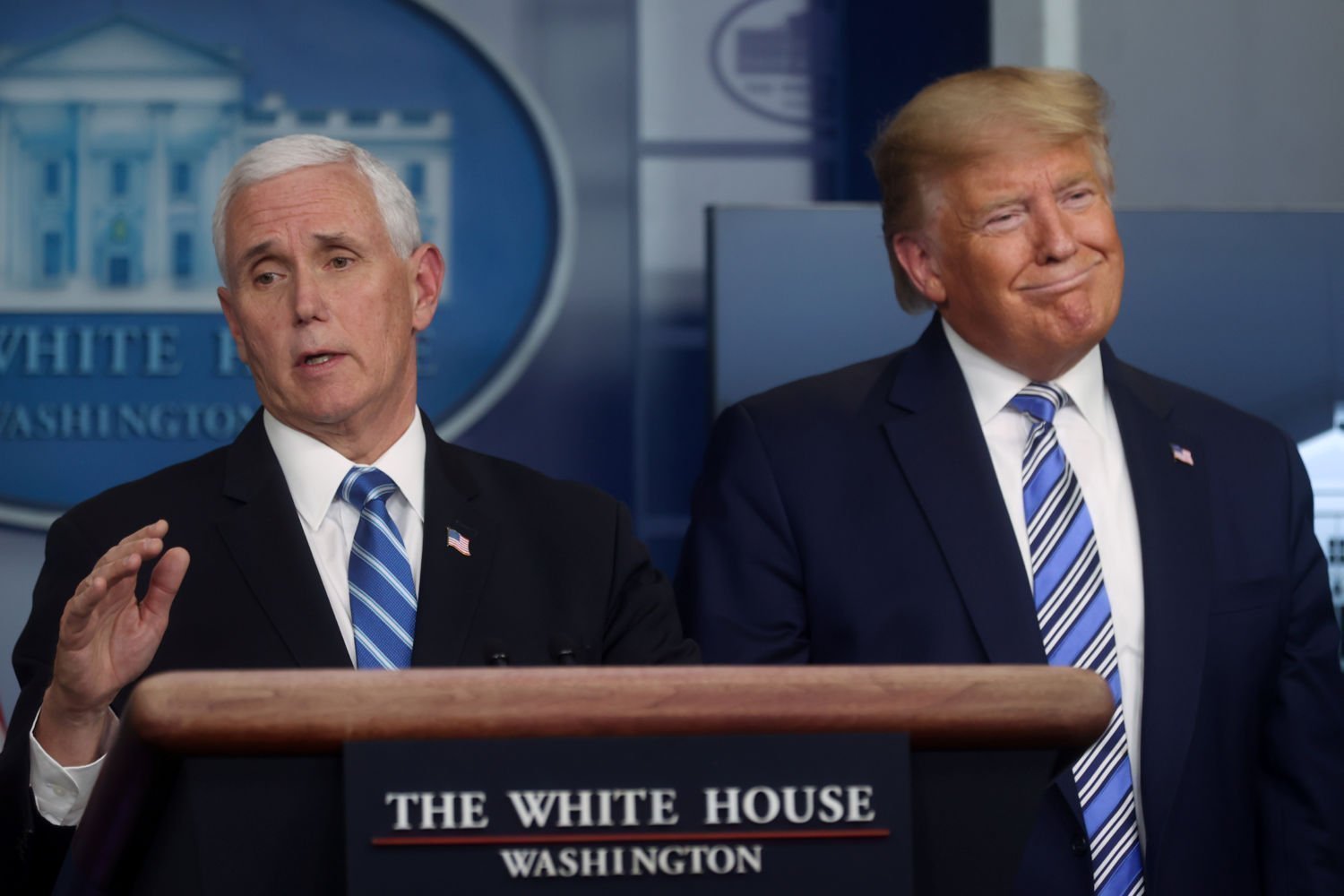A week after millions of Americans began taking shelter at home from the coronavirus, at least one Republican governor warned on Tuesday against easing restrictions too soon even though the clampdown is devastating the U.S. economy.
President Donald Trump said on Monday he was considering how to restart business life when a 15-day shutdown ends next week, even as the highly contagious virus spreads rapidly and poorly equipped hospitals struggle with a wave of deadly cases.
A Republican, Trump is seeking to win re-election in November on a promise of economic growth.
Maryland Governor Larry Hogan, also a Republican, warned against allowing people to travel, socialize and get back to workplaces too quickly.
“We don’t think that we’re going to be in any way ready to be out of this in five or six days or so, or whenever this 15 days is up from the time that they started this imaginary clock,” Hogan told CNN on Tuesday, adding that most people think the peak of the crisis is weeks or months away.
More than 42,000 people in the United States have contracted COVID-19, the respiratory illness caused by the virus, and at least 559 have died. The World Health Organization on Tuesday warned that the United States has the potential to become the global epicenter of the coronavirus pandemic, citing a “very large acceleration” in infections.
Trump issued guidelines last week that he said aimed to slow the spread of the disease over 15 days, including curbing unnecessary travel. Economic activity has ground to a halt in major states such as New York and California.
“America will again and soon be open for business,” Trump told a White House news conference on Monday. “We are not going to let it turn into a long-lasting financial problem.”
Rapidly reopening the economy might backfire, with higher deaths and people remaining fearful of going out, according to investors who remain anxious about the coronavirus’ uncertain trajectory and its economic toll.
“Markets will react badly because they have learned that this approach doesn’t work,” Axel Merk, chief investment officer of Merk Investments, said. “From a medical point of view, you have to break the exponential growth and you do that with shelter in place policies.”
WALL STREET JUMPS
After taking a beating for most days in recent weeks, Wall Street jumped at the open on Tuesday amid signs that Washington was nearing a deal on a $2 trillion package to rescue the economy from coronavirus.
The Dow Jones Industrial Average rose 1,130.26 points, or 6.08%, at the open. Oil jumped 3% towards $28 a barrel, supported by steps by the U.S. Federal Reserve to bolster the economy and hopes for a deal on the aid package.
Negotiators predicted the U.S. Senate could pass the stimulus bill, which includes financial aid for ordinary Americans, small businesses and critically affected industries, as soon as Tuesday.
Holly Huelster, a 33-year-old nanny from New York, said she believed Trump’s rhetoric about the economy threatens real harm to human lives.
“It’s horrible for the economy but I would put health as a priority always,” she said, as she pushed the 2-year-old boy she cares for down 11th Avenue.
Asked about Trump’s comments about wanting to ease social distancing soon, Dr. Deborah Birx, the White House coronavirus coordinator, told NBC News: “We have to be willing to adjust our plans as we see impacts.”
For right now, Birx said people in the United States should continue to follow the guidelines of social distancing.
“What the president is doing is looking for the future … not looking to change what we’re doing now,” she said.
Stephen Moore, an economic commentator said by Trump’s aides to be influencing the president, told Reuters on Monday there was a re-examination in the White House of the wisdom of “a full scale … shutdown of the economy.”
He said there were some who thought that “if we go on too long with the economy shut down, the human toll for that could be greater than the risk of the virus.”
The coronavirus has shuttered thousands of U.S. businesses, thrown millions out of work and led state governors to order about 100 million people – nearly a third of the nation’s population – to stay at home.
There were signs that nerves had begun fraying after days of people working from home, looking after children whose schools are shut and severely scaling back on everyday activities.
BATTLE OVER GUN RIGHTS
Gun enthusiasts have argued that gun shops and shooting ranges are essential and should remain open. Many states have shuttered such businesses but Connecticut, Ohio and Illinois are allowing gun shops to operate despite stay-at-home orders, the firearms news site The Trace reported.
The Rhode Island Second Amendment Coalition, a gun rights advocacy group, has tried to fight Governor Gina Raimondo’s order to shut gun ranges, arguing that closures deprive new gun owners of a chance to learn gun safety, the Providence Journal reported.
“It’s a public safety disaster. You can’t have that,” Frank Saccoccio, president of the coalition, told the newspaper.
Los Angeles County Sheriff Alex Villanueva declared gun stores as nonessential businesses that will be forced to close and said he was adding 1,300 deputies to patrol, FOX 11 TV station said.
Despite the huge changes to daily life, many Americans still say they are willing to make sacrifices.
Christine Schindler, 58, a former receptionist, was alone waiting for a bus on Manhattan’s Upper West Side on Tuesday. She said she thought it was dangerous to lift the restrictions too early for the sake of the economy.
“It’s going to come back up anyway, really, once things hit the bottom,” she said. “This is supposed to be the number one economy in the world,” she said.
(Reuters)






